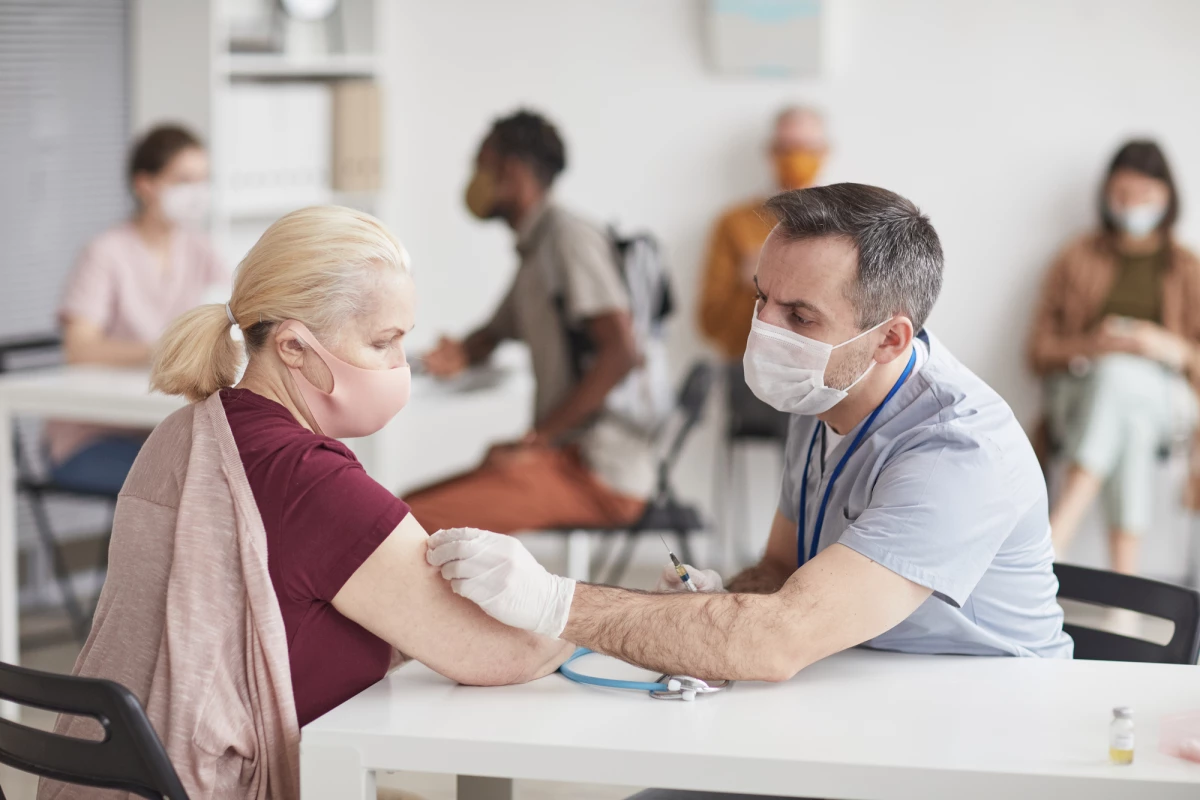A rapid research review conducted by the UK Health Security Agency (UKHSA) has affirmed prior findings indicating vaccination reduces a person’s risk of developing long COVID. The report also found vaccination after developing long COVID can improve persistent symptoms.
Last year researchers from King’s College London presented one of the first large investigations into the effects of vaccination on rates of long COVID. The study found fully vaccinated adults experiencing a breakthrough SARS-CoV-2 infection were around 50 percent less likely to experience long COVID.
A new rapid evidence briefing from the UKHSA has looked at 15 studies investigating the relationship between vaccination and long COVID. Eight studies specifically focused on whether vaccination before infection reduced a person’s risk of long COVID. Six of those studies found vaccinated individuals were less likely to show signs of long COVID after SARS-CoV-2 infection compared to the unvaccinated.
The review also noted that because these studies are comparing breakthrough cases of COVID-19 in vaccinated people to COVID-19 cases in the unvaccinated they are likely underestimating the capacity of vaccines to prevent long COVID. After all, vaccines still prevent SARS-CoV-2 infection in the first place for many people.
“As all eight studies included only participants who had COVID-19, the effect of vaccination on reduced incidence of COVID-19 is not accounted for,” the review stated. “This means these studies do not give a total population estimate for the effectiveness of vaccines to prevent long COVID, but rather underestimate it.”
The review analyzed seven studies looking at the effect of vaccination on subjects already suffering from long COVID. The majority of these studies found vaccination reduced symptoms of long COVID, particularly in those vaccinated soon after their initial diagnosis.
“These studies add to the potential benefits of receiving a full course of the COVID-19 vaccination,” said Mary Ramsay, the UKHSA’s head of immunization. “Vaccination is the best way to protect yourself from serious symptoms when you get infected and may also help to reduce the longer-term impact.”
Deborah Dunn-Walters, chair of the British Society of Immunology, noted the data in the rapid review is less clear on how effective vaccination is at treating long COVID. But, she says, it is certainly robust and convincing on the question of vaccination reducing risk of long COVID.
“This review reemphasizes the importance of everyone, no matter their age, getting vaccinated against COVID-19,” said Dunn-Walters. “Vaccination is the safest and most effective way to protect yourself from falling sick with COVID-19 and suffering from long COVID post infection.”
The UKHSA does make clear this rapid evidence review is based on observational studies with varying definitions of long COVID. However, it does offer the clearest indication to date as to the value of vaccination in protecting against long COVID.
Source: UKHSA




